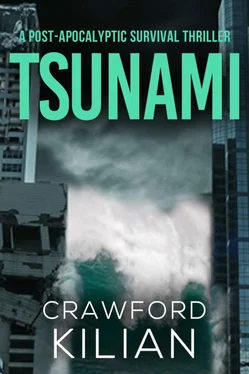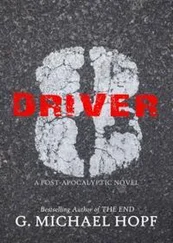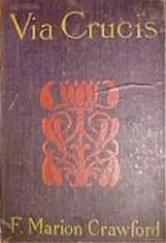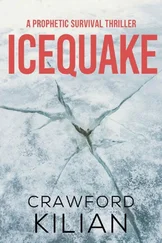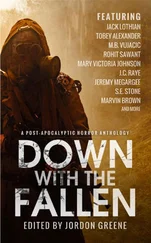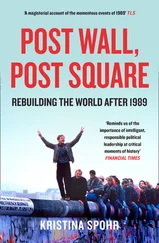“Maybe cowshit is more persuasive than bullshit,” Burk cackled. “Hell, Bob, for all I know their damn cow wandered up the road and then turned off into the woods. But I’ll tell you something — she won’t last long if she’s outside in daylight. She’ll go blind by sundown, and the coyotes will finish her off at night.”
Allison began to feel foolish. Burk was much more his kind of man than Ray Wilder or Jeremy Lamb; he felt as if he had been suckered in on the side of the wimps.
“Well,” he said. “I’ll tell Mr. Lamb what you’ve told me. Thanks for your time.”
Burk stood up and extended his hand. “It’s been a real pleasure meeting you, Bob. Take care of yourself and your people. Nobody else will.”
Allison let himself out the front door and walked across the porch. The tall woman was nowhere around. He studied the vegetable garden admiringly: the sunshields faced south, leaving plenty of open space for rain and cultivation. The sun was up now, somewhere behind the overcast, and he should be getting under cover; but he walked into the farmyard behind the house to see what else Burk and his people had done.
In the yard was a fresh cowpat. “Uh-oh,” Allison muttered. He walked farther into the yard, until he could glance into the open barn door. A rivulet of blood ran over the concrete floor of the barn and lost itself in the mud Inside, working by the light of a Coleman lantern, three men were butchering a cow. They didn’t notice him, and he walked quickly out of the yard. The tall woman was standing on the porch.
“I didn’t expect you to be finished so soon,” she said. “I’ll walk you back to the gate.”
“That’s okay; I can find my way”
“It’s no trouble,” she insisted. Allison ignored her all the way out to the gate, while he angrily thought that cowshit was indeed much more persuasive than bullshit.
* * *
A month after the waves, the wrecked areas of Monterey were still uncleared moraines of rubble, turning green in places with UV-resistant weeds. The surviving neighbourhoods, south and west of the rubble, were not much better. No store was open; all had long since been emptied by the army or by looters, and many had been gutted by fire. Squatters had moved into some storefronts, patching the lost windows with plastic or cardboard. Now that it was after five in the afternoon, and mostly cloudy, a few children were venturing out of apartment buildings and houses to play in the littered, potholed streets. Like the adults who watched them from behind glass, the children were scrawny, ragged and deeply tanned. The only other people on the streets were soldiers, most of them blacks, patrolling in teams of three. They watched expressionlessly as Allison and Bert drove past in the Range Rover; the truck carried an orange plastic pennant on the antenna, a passport bestowed by a patrol in Carmel when Allison had told them his destination was Ford Ord.
The waves had wiped out Highway 1 from Monterey to the village of Marina, north of Ord. The fort’s dunes and firing ranges were gone. For a mile inland from the surf, the shore was a sandy plain studded with half-buried cars, boats and odd bits of wreckage — all of it blackened by oil.
“Really stinks when you’re downwind,” Bert observed.
“Ray Wilder tells me it’s from a tanker called the Sitka something. I think I must’ve seen it the morning before the waves hit. Big son-of-a-bitch, off in the middle of the bay.” Alison glanced out at the water. “About where that sailboat is. Christ, who would be crazy enough to go sailing through an oil slick?”
“Maybe it’s somebody thinking about salvaging the tanker.”
“Good luck. I’d be surprised if there was any oil left in that damn thing. The whole goddamn shoreline is filthy.”
At the new main gate, six black MPs inspected them, then waved them through. The post, as they drove up North-South Road, looked almost normal. The lawns in the dependents’ housing area were dead, but house plants in the picture windows were vividly green. The school was deserted. Except for MP patrols in Scouts, the streets were empty.
The centre of Fort Ord was busier: soldiers and their families were in the PX, the snack bar and even the library. The bank was opened; Allison had heard that it now dealt only in army-issued scrip. Everything was in good repair, but buildings and cars looked shabby: months of UV had blistered and bleached their paint.
General Miles’s office was in a stucco-and-tile building not far from the officers’ mess. Miles was cheerful, friendly and drunk. He offered them Scotch or rye, and did not mention Perrier water. Both men took Scotch and settled onto a leather couch, across a coffee table from Miles’s armchair.
“You’re looking pretty damn good, Bob. Pretty damn good,” Miles boomed after Bert had been introduced. “Haven’t seen you since the big day. Boy, that was a hell of a week, wasn’t it? Huh?”
“It sure was, General.”
“How d’you like living under martial law?”
Allison hadn’t noticed that he was living under any sort of law at all, but he leaned forward, solemn and intent. “General, it was your decisiveness that saved this whole area. We all owe you a debt of gratitude. Otherwise we’d have gone down the drain like L.A. or San Francisco. I mean that sincerely.”
“Well, I appreciate that, Bob. Hell. I’m just trying to do my job. Not getting any easier, either. I keep asking for help, and they keep telling me to hang tough, hang tough, I got it better than most.” He finished his drink and poured another. “Got it better than San Diego, I’ll admit that.”
“What’s the story there?” Allison asked.
“They had some kind of radiation spill when the waves hit. Some people think it was a nuclear reactor on shore, some think it was one of the nuclear subs that got sunk. Whatever, they ended up with about a quarter-million dead from radiation alone. Not counting the hundred thousand dead in the waves. Fallout reached all the way to Tucson.”
Allison and Bert stared at each other.
“Things’re screwed up all over the west,” Miles went on in a slurred drone. “Some kind of war going on in Seattle, with regular troops and National Guard units fighting each other. No goddamn organization at all left in San Francisco. All they got is these local councils, sort of vigilante outfits, and some individual army units still runnin’ a couple of neighbourhoods.”
“What’s it like back east, General?” Bert asked. “We haven’t heard a thing.”
“I haven’t heard much either. The president’s still in Washington, but the government doesn’t seem to amount to much outside of the army and air force.” Miles rambled on in a monologue full of rumours, digressions, bad jokes and nostalgia. At last Allison found an opportunity and explained why they had come. The general listened, nodding and grunting, and then said:
“Can’t have that. Not for a minute. We’ll kick his butt. Only thing is finding the men to do it.”
“I don’t follow you,” Allison said.
“We got a little AWOL problem here. See, a lot of my boys are getting worried about the folks at home, you know? So they’re packing up and moving out, a couple dozen every night, sometimes more. The ones that stay are gettin’ hard to handle. They sit around smokin’ dope and gettin’ kinda wild. I’d like to shoot a couple, but the next thing, they’d frag a couple of officers or just take over. So I don’t have the reliable manpower I had a month ago. Some of them are gone, some of them are stoned, and lots of ‘em just aren’t obeying orders.”
“My God, Ernie,” Allison said urgently, “we just need like a platoon for a day or so, to sort out these guys and arrest the leaders.”
Читать дальше
